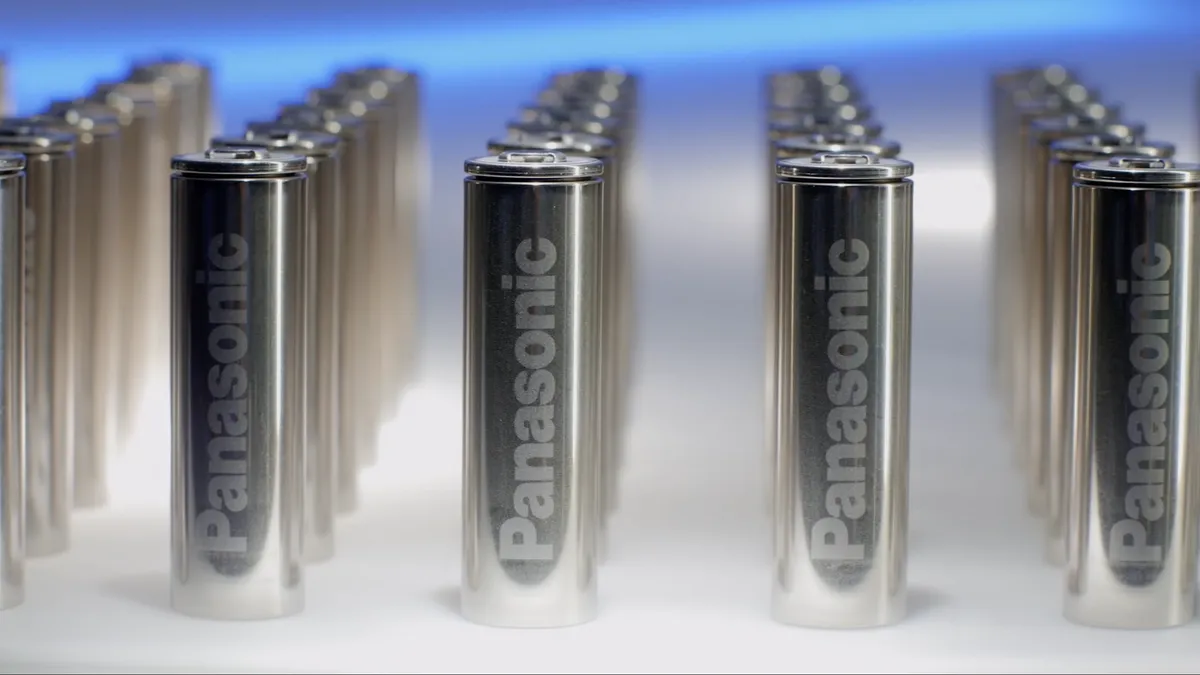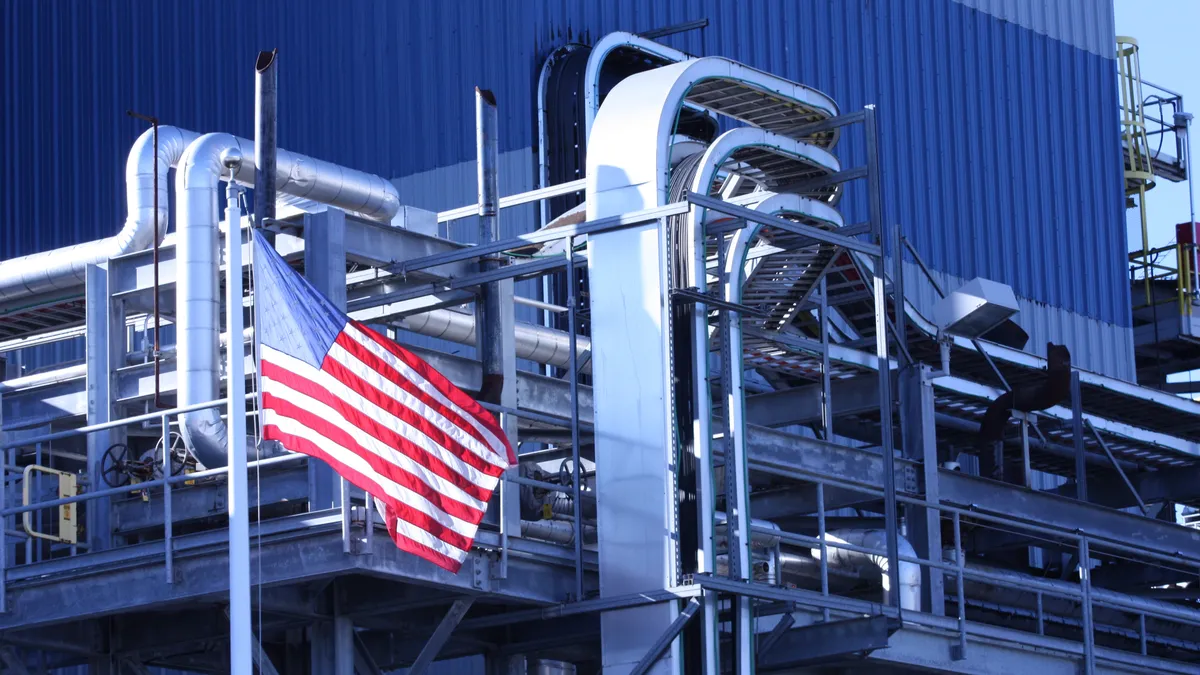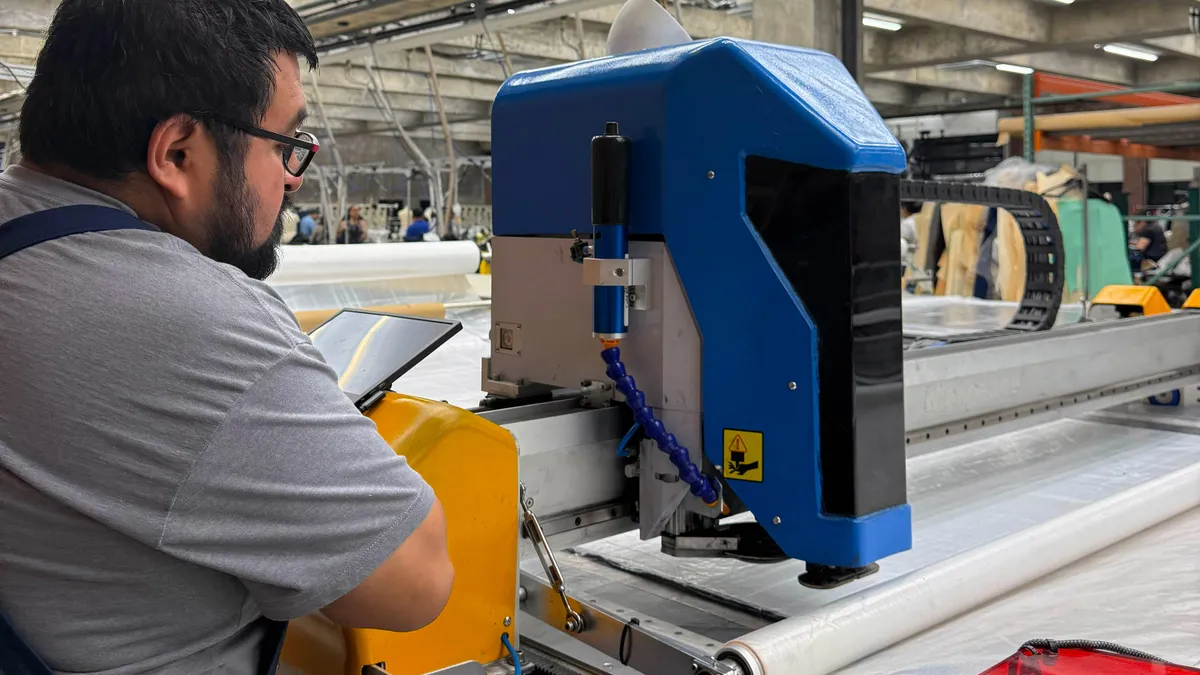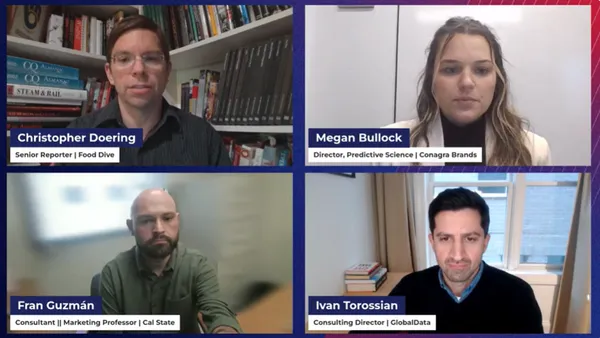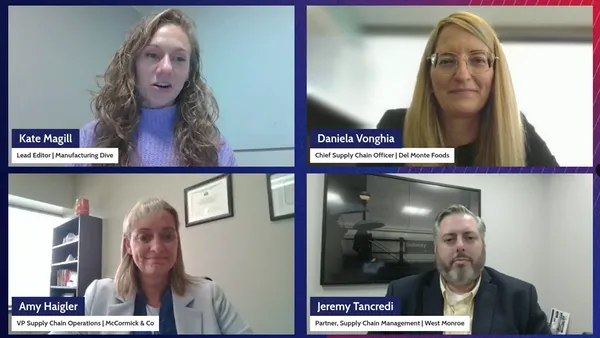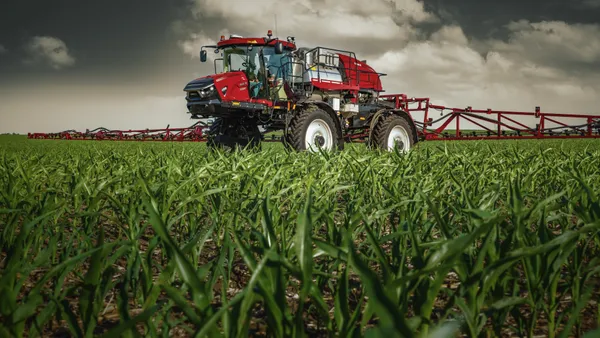Dive Brief:
- Panasonic Energy signed an agreement with Germany-based H&T Recharge to supply lithium-ion battery cans for Panasonic’s electric vehicle batteries in North America, the company announced last month.
- As part of the deal, H&T plans to implement four new production lines at Panasonic’s EV battery plant in De Soto, Kansas, which is expected to begin production next March. The lines will enable the company to supply battery cans for Panasonic’s 2170 batteries with an annual capacity of approximately 30 gigawatt-hours, H&T said in its press release.
- The new deal extends Panasonic and H&T’s collaboration in Sparks, Nevada, which began in 2017. H&T’s facility supplies Panasonic’s plant with approximately 40 GWh of battery can capacity yearly.
Dive Insight:
Panasonic’s latest transaction is part of the EV battery maker’s goal to strengthen its supply chain in North America, the company said in the release.
“Our goal is to have up to 50% North American supply chain, and Panasonic Energy’s partnership with H&T is part of the company’s strategy to strengthen its supply chains in North America by increasing the level of local procurement of battery components,” Panasonic Energy of North America said in an email to Manufacturing Dive.
In addition to the four H&T production lines, the battery component maker said the product and process development will take place at H&T's Center of Excellence in Marsberg, Germany.
H&T will also establish a facility in De Soto, Panasonic said. In an email to Manufacturing Dive, Panasonic said it cannot speak on behalf of H&T about its investment and plans.
“Panasonic is a great partner for H&T who has over 40 years of experience in the mass production of cylindrical battery cans,” H&T Recharge President Tobias Ott said in a statement. “We will ensure a successful execution with our US-based mass production resources and experience combined with research and development out of our Center of Excellence in Germany.”
Panasonic’s growing domestic supply chain will also help the EV battery maker maintain stable sourcing, decrease its carbon footprint, as well as manage global logistics challenges, the company told Manufacturing Dive.
That includes increasing its supply of critical minerals for its EV battery production, which Panasonic has been stocking up on over the past few weeks. Last month, the company signed graphite supply deals with Canada-based Nouveau Monde Graphite and Australia-based Novonix.
Panasonic is also designing and manufacturing its lithium-ion batteries to improve safety, according to the release. Using aluminum cans for battery cells could help prevent the company’s batteries from overheating, starting a fire or exploding, according to a 2023 study in the Journal of Energy Storage.
The Senate Committee on Commerce, Science, and Transportation discussed EV battery fires during a hearing last week. In 2020, the National Transportation Safety Board released a report stating that lithium-ion-powered EVs' high voltage poses a risk to emergency responders and tow truck drivers.
“While we have not done an investigation involving electric vehicles and the wait, I have raised a red flag numerous times to say it is an impact on safety,” NTSB Chair Jennifer Homendy told senators at the hearing.



